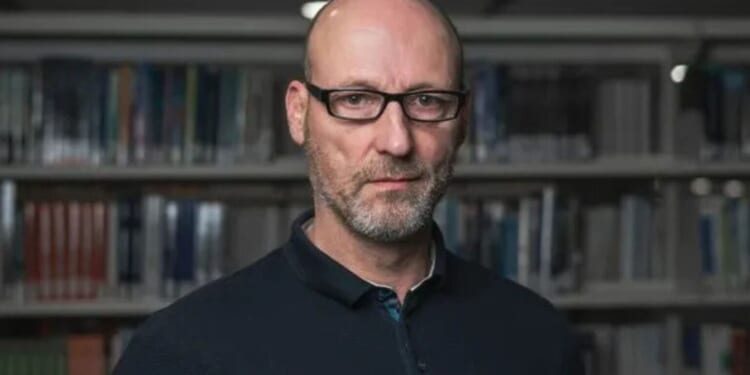What should criminology students learn about rape? The treatment of Stuart Waiton, a sociology lecturer at Abertay University, shows that questioning the current practices of the legal establishment and challenging the views of feminist campaigners are now deemed off-limits. Encouraging students to think critically about Scotland’s rape laws has led to Waiton being vilified on social media, becoming the target of slanderous graffiti and subject to national press speculation. Now he is the focus for a planned student protest.
We have been here before. Four years ago, philosophy professor Kathleen Stock resigned from the University of Sussex after students, offended by her gender-critical views, harassed and intimidated her for simply doing her job. Stock’s case made clear the parlous state of academic freedom in British universities. It led to the University of Sussex being fined by the Office for Students over concerns that it had not acted in line with legal requirements, most notably, in relation to freedom of speech and equality matters. Sadly, as Waiton’s case shows, little has been learned. University managers are still reluctant to intervene and defend academics facing the wrath of angry students.
Yet just as Stock was right to question gender ideology, so Waiton is also right to question Scotland’s rape laws (which he has done in both his academic work and in the press, including on spiked). Over recent decades, lawyers and feminist campaigners have grown increasingly concerned that juries in rape cases may be influenced by ‘rape myths’ – for example, that a woman who dresses or acts provocatively consents to having sex, or that women routinely lie about being raped. In a bid to secure more convictions, legal processes have been introduced to counteract the impact of these myths in rape trials. So, in Scotland, ‘rape-shield’ legislation means that evidence relating to the character or past sexual history of an accuser cannot normally be heard in court.
The problem with this is that not all rape myths are straightforwardly false. Sometimes, an understanding of the broader context of events may be absolutely crucial to making sense of whether or not rape has been committed. Yet the assumption that rape myths are both untrue and pernicious has led to the balance of justice being tipped in favour of the accusers, who are mainly women and assumed to be ‘victims’ even before a case is tried, and against the accused, who are mainly men and are often treated as guilty before justice has been served. Not giving those accused of rape a fair trial risks not just wrongly imprisoning innocent men, but also undermining faith in the entire judicial system. This is not in the best interests of either men or women.
Waiton’s ‘crime’ has been to ask criminology students to grapple with these important legal and moral issues. He has been punished by being branded a ‘rape apologist’. His students, it’s worth noting, are young adults interested in the treatment of offenders who may well go on to careers in the justice system. If they do, they will be confronted with people who not only hold controversial views but who have also committed heinous acts. And yet, those now calling for Waiton’s resignation think criminology students should be protected from people like Marsha Sturgeon, the operations director of Justice for Innocent Men Scotland (JIMS). Last month, Waiton invited her to speak with his students, and she argued that there were ‘innocent men in prison, families broken [and] communities destroyed’ due to ‘wrongful’ rape convictions.
Given the state of our prison system – with recent high-profile cases of convicted criminals being accidentally released and others being deliberately released to quell overcrowding – it would be a surprise if there wasn’t anyone serving time for a wrongful conviction. The suggestion that there may be miscarriages of justice in rape trials is therefore worthy of investigation. It should not simply be written off as ‘men’s rights extremism’. In any case, Waiton’s students were under no obligation to take everything Sturgeon told them at face value. They were free to raise questions and challenge her views. The whole point of being at university is for students to learn how to think critically, and confronting opinions that challenge the consensus is a vital part of that process.
Yet there are calls to have Waiton silenced, such as from advocacy group Justice for Every Mistreated Survivor, Rape Crisis Scotland chief executive Sandy Brindley and rape survivor Ellie Wilson. There have even been calls for him to be sacked. Rather than supporting its employee and making a principled defence of academic freedom, Abertay University has merely said that the JIMS speaker was ‘not approved by the senior management team’ and its investigation into the matter is ongoing. This moral cowardice shows scant regard for academic freedom. It is not senior managers but lecturers who have the expertise to know which guest speakers can most usefully contribute to students’ learning.
Abertay University’s shameful reluctance to hold a firm line and back Waiton means that the campaign of harassment against him has been allowed to pick up steam. A ‘counter-lecture’ by a police rape-investigations team is now scheduled to take place, with members of Dundee Women’s Aid, and Dundee Women’s Rape and Sexual Abuse Centre, set to attend. A student-led protest is also planned for later this week. In addition, students are demanding an urgent review of all of Waiton’s teaching materials. This is a shocking infringement of academic freedom.
All those who were, rightly, outraged at the treatment of Kathleen Stock four years ago now need to show their support for Stuart Waiton.
Joanna Williams is a spiked columnist and author of How Woke Won. Follow her on Substack: cieo.substack.com.

















